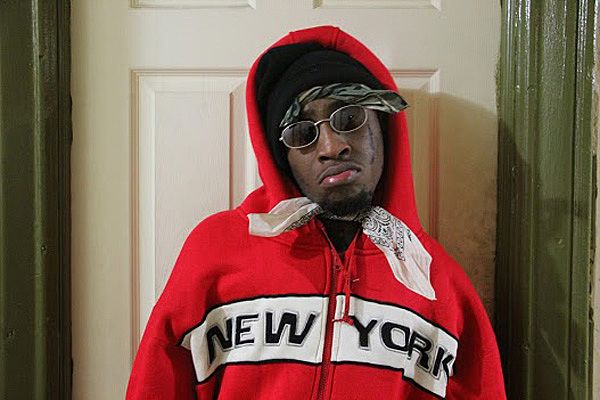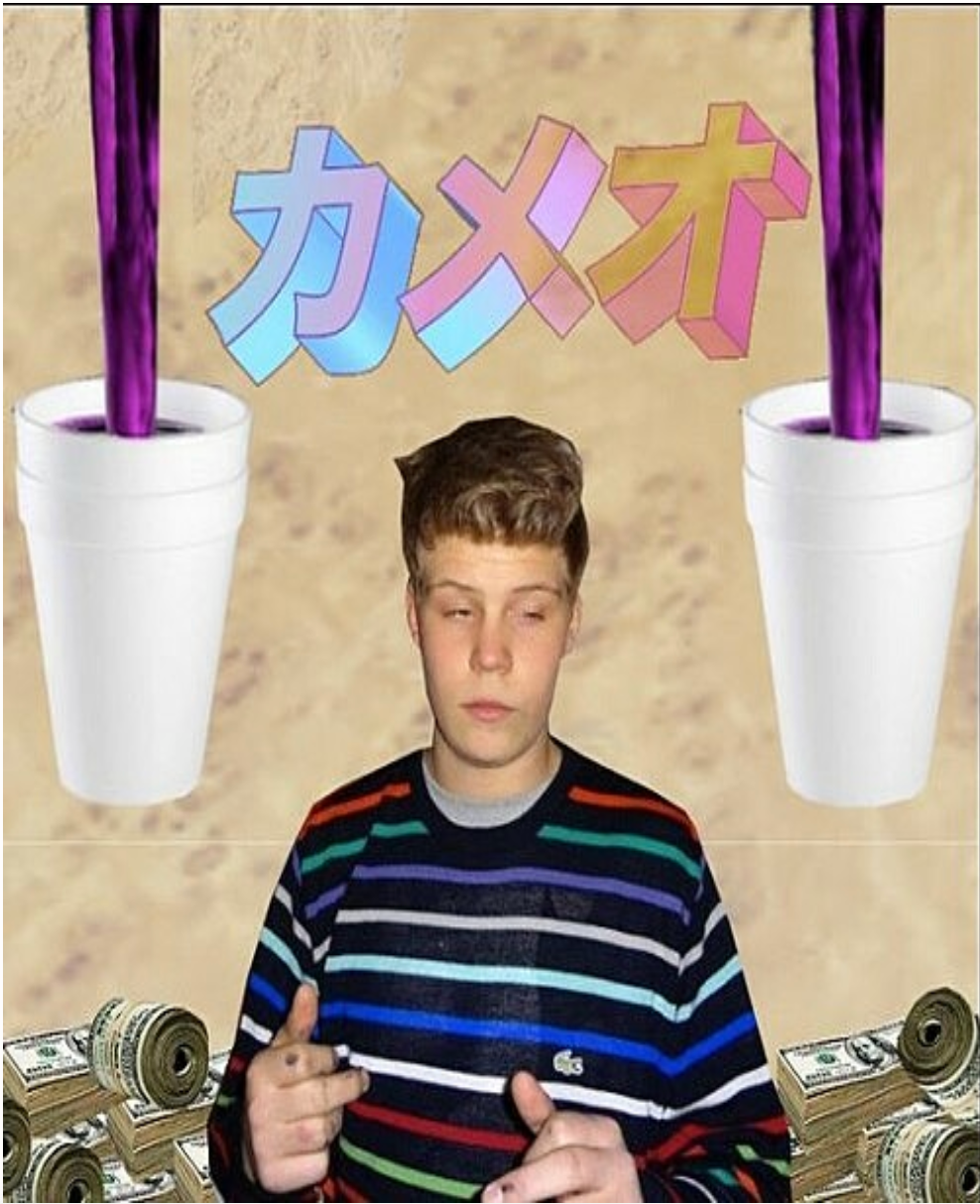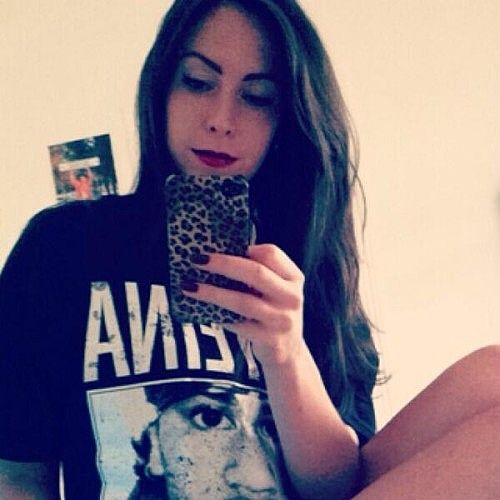All My Real Thugs Come Cry With Us: On Sad Rap and Trivialising Depression
Sad rap - samples of sobbing women and mournful anime themes paired up with crushing, mundane, paralytic sadness - sounds like it's not much fun. Except for when it is, and for when it saves you. Madeleine Holden on Little Pain, Yung Lean, and why we seem to demand stoic depressives 24/7.
Some time about halfway through 2013, the subgenre of sad rap was born. It kicked off after Noisey profiled its two key practitioners: Little (not “Lil”) Pain, a 22-year-old rapper based in Brooklyn, New York; and Swedish teen Yung Lean and his mopey crew of Sad Boys. Despite every rap head on the Internet immediately thrusting forth their copies of The Diary to harp on about how sad rap isn’t new, a pair of rappers hinging their entire personas on near-camp levels of misery clearly was, and sad rap as a movement was spawned.
For the unfamiliar, sad rap is, thematically-speaking, much like you'd expect: samples of sobbing women interspersed with lyrics about being broke, hating life, fucking sad girls and, above all, crying. We’re not talking about rap with an odd line or two about life's bummers here: sad rap is full-on misery immersion like you’ve never heard before, and it’s really, really good:
The backlash was immediate. Much of sad rap’s criticism took the form of “cheer up u fucken fags” and "dis not Real Hip Hop", but some of it was more thoughtful. In the latter category was Dharmic X’s impassioned refutation of the genre for Refined Hype, who charged Little Pain with trivialising and simplifying depression:
[T]o boast about sadness trivializes the serious issue of depression that the hip-hop community needs to address at some point… It upsets me that a rapper from Brooklyn would make music that belittles those who fight with actual tormented emotions, considering that one of Brooklyn's brightest stars-in-the-making, Capital Steez, was unable to conquer his demons, committing suicide less than six months ago.
Being sad is not a fucking joke.
Being sad is no fucking joke for real. I discovered Little Pain when I was in bed during June this year; the same bed I’d been propped up in for three weeks straight during the bleakest depressive meltdown I’ve ever had. My life has been punctuated by bouts of depression, but this was my personal rock bottom: a self-loathing weeks-long shame spiral where I couldn’t physically leave my bedroom to attend a best friend’s farewell, or eat; where I sat for days amongst blunt ash and Valium bottles, telling myself that I was a piece of shit who’d never thrive and believing it to my very core. It’s a mundane kind of misery that plagues most of us at some point, but it’s still deeply uncouth to talk about; so when I lay in my pizza-box-strewn bed and flicked open Little Pain’s SoundCloud, hearing him spit lines like “second verse and I'm still sad / dropped my bitch ‘cause she too glad”, I sat up straight, and grinned.
~
We live in a world that exhorts us to be positive in the most saccharine and exhausting of ways. Barbara Ehrenreich has written about our “culture of mandatory optimism”; about the way we bombard deeply unhappy people – people who have lost their jobs, people who have been diagnosed with terminal illnesses – with platitudes about “thinking positive!” and “having a good attitude!". She identifies the cruelty in our “cult of cheerfulness”: how deeply isolating it is to be a depressed person in a near-fascistically positive culture; in a world that abhors the “downbuzz” and the “unchill”; in a society that chides sad people for being “negative” and “not trying hard enough to be positive”. We thrust well-meaning but naively simplistic techniques like “positive thinking” and “zero-based gratitude” at people with illnesses preventing their brains from doing those things. As a friend of mine with anxiety-based depression puts it, exhortations to “realise how blessed you are!” and “enjoy every day on earth!” can be fucking hurtful, and even more depressing.
So what, then, of people who “come out” as depressed in this culture? We live in an era of unprecedented openness about mental illness but we still treat depression with one-size-fits-all kid gloves. Our discourse around depression and happiness-seeking is corny, unnuanced and overly-sincere; full of clichéd comparisons to the common cold and well-meaning but limp-dicked encouragements to “reach out” and “ask for help”. When I was becoming increasingly dysfunctional I was encouraged to seek therapy, so I did. It was a mortifying, useless experience. I blew more than $1,000 on stilted conversation with an old white dude who wore blue crocs and whose advice to me essentially boiled down to “eat healthy” and “get a boyfriend”. Therapy was supposed to be the “right way” to treat depression but it always left me feeling worse: I felt infantilised and misheard, and I couldn’t think of anything worse than becoming a perky whitebread dingus like my therapist. I understand that therapy is useful for lots of people and its effectiveness is well-established, but for me I found more genuine peace listening to rappers wallowing in exaggerated misery than I ever did listening to an earnest baby-boomer with a PhD telling me to eat more vegetables.
So while I respect the place that it comes from, I can’t get behind the critique that sad rap “trivialises depression”. Little Pain portrays sadness in a comically over-the-top and tongue-in-cheek form, sure; but in a culture of forced optimism a rapper openly wallowing in and bragging about sadness is transgressive; it’s a departure from our current methods of dealing with misery which genuinely resonates with people and which is potentially more impactful than depression’s “correct” treatments. It’s not new for rap to touch the topic of despair, but until now it’s tended to be via a narrative of overcoming it: sadness as a “birthdays was the worst days” past-tense state, or else spliced with more guarded and po-faced emotions like hot-headed aggression or apathetic horniness. Sad rap’s unique feature is that it takes the experience of being sad and wrings it out shamelessly: it hones in on what it feels like to be miserable right now and teases it out in hilarious detail. That’s refreshing. “Stopping sad rap before it starts” and mandating that depression continue to be treated with straight-faced solemnity and St John’s Wort is a far more miserable prospect to me than a rapper with an aesthetic bathed in tears who tweets “I hate you” to himself.
Besides: one of the most flawed mischaracterisations of depression is that it renders you incompatible with humour; like some woebegone Eeyore drained of all warmth and wit. It doesn’t. Depression as an experience is excruciating, but it’s also very ordinary. It hits most of us at some point – our sharpest comedians, our strongest rappers, our most infectiously-entertaining friends – and it doesn’t necessarily suck the soul right out of you. Little Pain is the self-professed saddest rapper out but his music, and his twitter account, is really fucking funny, and that’s perfectly consistent with the experience of depression generally: its sufferers are frequently funny, talented and miserable at the same damn time. Protecting depressed people from sad rap strikes me as condescending and counter-intuitive, because knowing you’re not alone in your sadness feels really fucking good, and sometimes the best way to pull through bleak times is to turn up a song called “SMH”, look around at the dingy den of shit and detritus you’ve curated for yourself, and bury your head in your hands and laugh. That’s the exact function sad rap serves for thousands of its fans, and that’s what it did for me.
The misconception that depression and humour are incompatible has fuelled a persistent mistrust of Little Pain and his motives. Ever since he emerged, bloggers and listeners have been obsessed with cracking whether or not he's a “gimmick”; an enduring fate of his different-side-of-the-same-coin predecessor, Lil B. Little Pain has expressed plainly, a number of times, that he has seriously struggled with depression; he insists he’s being his authentic self when he tweets about crying with sad bitches and hashtags his tweets #ForeverAlone. The tendency to disbelieve him and write him off as a joke is clueless for two reasons: firstly, because auditing whether or not someone is “really” sad is fucking insulting, and meaningless; and secondly, because the inquiry completely misses the point: the divide between being depressed and funny is imaginary; it isn’t real. Drew Millard was on the money in his initial piece on the sad rap movement when he noted that it’s “100% possible to be silly about something while still being totally genuine, even your sadness”, and Little Pain summed it up more succinctly still:
Why do ppl act like it's absurd to be sad and still have fun?
— LITTLE PAIN (@PainDaThug) July 17, 2013
Being sad is not a joke, and sad rap certainly deserves our scrutiny. But sadness isn’t a one-dimensional state suffered solely by broken, solemn people; it’s not incompatible with warmth and self-deprecating hilarity; and depressed people don’t need to be saved from lines like “shed some tears up in ya spouse / find tear drops all on her blouse”. I’m not a stand-in for every person who’s ever dealt with depression, but even at my lowest point sad rap never made me feel “belittled”. All it ever made me feel was lighter.


